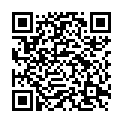|
|
|
| Module code: BAME18-22 |
|
4S (4 hours per week) |
|
6 |
| Semester: 6 |
| Mandatory course: no |
Language of instruction:
German |
Assessment:
Exam achievement: Term paper
[updated 05.11.2020]
|
BAME18-22 Health care management, Bachelor, ASPO 01.10.2018
, semester 6, optional course
|
60 class hours (= 45 clock hours) over a 15-week period.
The total student study time is 180 hours (equivalent to 6 ECTS credits).
There are therefore 135 hours available for class preparation and follow-up work and exam preparation.
|
Recommended prerequisites (modules):
BAME18-05 Academic Methodologies and Study Skills I
BAME18-07 Methodologies I
[updated 17.08.2017]
|
Recommended as prerequisite for:
|
Module coordinator:
Prof. Dr. Martha Meyer |
Lecturer:
Prof. Dr. Johannes Gräske
Prof. Dr. Martha Meyer
Dr. Sindy Lautenschläger
[updated 17.08.2017]
|
Learning outcomes:
Creating and Evaluating Systematic Reviews:
After successfully completing this module, students will have acquired basic knowledge about how to create reviews and evaluate them critically. They will be able to formulate review questions, search for literature in databases relevant to their subject area, select literature from the pool of literature they researched, assess the quality of the literature, summarize evidence and interpret results.
Bachelor Thesis Colloquium:
This module also accompanies students during the course of their Bachelor thesis. In this course, students will develop their topic and its presentation, as well as answer theoretical questions based on an exposé in the plenum. They will have the opportunity to discuss their technical and methodological problems. After successfully completing the module, they will be able to develop a realistic time/work schedule for their Bachelor thesis and avoid wasting time on unnecessary tasks. Students will be familiar with methods of creative writing and will be able to use them to support their personal writing process.
[updated 05.11.2020]
|
Module content:
Creating and Evaluating Systematic Reviews:
Formulating review questions
_ Variations of population, interventions and endpoints
_ Variations in study design
_ Modifying your research question during the review process
Identifying relevant literature and extracting data
_ Carrying out a systematic literature search
_ Selecting relevant studies
_ Extracting data
_ Publication bias and other systematic distortions
Evaluating literature
_ Quality assessments
Summarizing evidence
_ Narrative synthesis
_ Quantitative synthesis
Interpreting results
_ Recognizing forms of bias
_ Determining the significance of review results
_ Evidence profiles and practical recommendations
Bachelor Thesis Colloquium:
The content of the module and its focus will be determined by the questions posed in the seminar, existing knowledge as well as the methods, instruments and procedures used by the students. The module also introduces students to creative writing methods.
[updated 05.11.2020]
|
Teaching methods/Media:
Print and electronic media, presentations, mind maps, meta plan, writing exercises, PC exercises in specialist databases
[updated 05.11.2020]
|
Recommended or required reading:
Creating and Evaluating Systematic Reviews:
_ Centre for Reviews and Dissemination (2009). Systematic Reviews. CRD`s guidance for undertaking reviews in health care. University of York: CRD
_ Grant MJ, Booth A (2009). A typology of reviews: an analysis of 14 review types and associated methodologies. Health Information & Libraries Journal 26(2):91-108
_ Greenhalgh T (2003). Einführung in die Evidence-based Medicine. Kritische Beurteilung klinischer Studien als Basis einer rationalen Medizin. 2. vollst. überarb. Aufl. Bern: Hans Huber
_ Guyatt GH, Oxman AD, Kunz R, Vist GE, Falck-Ytter Y, Schünemann HJ, et al. (2008). What is _quality of evidence_ and why is it important to clinicians? BMJ 336:995-8
_ Higgins JPT, Green S (Hg) (2012). Cochrane Handbook for Systematic Reviews of Interventions. Version 5.1.0. (updated March 2011). The Cochrane Collaboration. http://handbook.cochrane.org/
_ Kunz R, Khan KS, Kleijnen J, Antes G (2009). Systematische Übersichtsarbeiten und Meta-Analysen. Einführung in Instrumente der evidenzbasierten Medizin für Ärzte, klinische Forscher und Experten im Gesundheitswesen. 2. vollst. überarb. Aufl. Bern: Hans Huber
_ Moher D, Liberati A, Tetzlaff J, Altman DG (2009). Preferred reporting items for systematic reviews and meta-analyses: the PRISMA statement. PLoS medicine 6(7):e1000097. DOI:10.1371/journal.pmed.1000097
_ Schünemann HJ (2009). GRADE: Von der Evidenz zur Empfehlung. In: Zeitschrift für Evidenz, Fortbildung und Qualität im Gesundheitswesen 103(6):391-400. DOI: 10.1016/j.zefq.2009.05.023
_ Schünemann HJ, Langer G, Meerpohl JJ, Ollenschläger G, Perleth M (2012). Das GRADE-System: Ein Prolog zur Artikelserie in der ZEFQ. Zeitschrift für Evidenz, Fortbildung und Qualität im Gesundheitswesen 106(5):354-356. DOI: 10.1016/j.zefq.2012.05.016
_ Schünemann H (2009). Integrative Beurteilung der Evidenz im Gesundheitswesen: das GRADE System. In: Zeitschrift für Evidenz, Fortbildung und Qualität im Gesundheitswesen 103(5):261-268. DOI: 10.1016/j.zefq.2009.05.007
Bachelor Thesis Colloquium:
_ Bensberg G (2013). Survivalguide Schreiben: Ein Schreibcoaching fürs Studium. Bachelor-, Master und andere Abschlussarbeiten. Vom Schreibmuffel zum Schreibfan! Berlin, Heidelberg: Springer
_ Kruse O (2007). Keine Angst vor dem leeren Blatt _ Ohne Schreibblockaden durchs Studium - Campus Concret Verlag.12. Aufl.
_ Müller-Seitz G, Braun T (2013). Erfolgreich Abschlussarbeiten verfassen: Im Studium der BWL und VWL. München: Pearson
_ Oertner M, St. John I, Thelen G (2014). Wissenschaftlich schreiben: Ein Praxisbuch für Schreibtrainer und Studierende. Paderborn: Fink
_ Peters JH, Dörfler T (2015). Abschlussarbeiten. In der Psychologie und den Sozialwissenschaften. Schreiben und Gestalten. Hallbergmoos: Pearson
_ Plümper T (2012). Effizient schreiben: Leitfaden zum Verfassen von Qualifizierungsarbeiten und wissenschaftlichen Texten. 3. vollst. über-arb. Aufl. München: Oldenbourg
_ Pyerin B (2007). Kreatives wissenschaftliches Schreiben. Tipps und Tricks gegen Schreibblockaden Weinheim und München: Beltz Juventa
Additional literature will be announced in the course.
[updated 05.11.2020]
|


